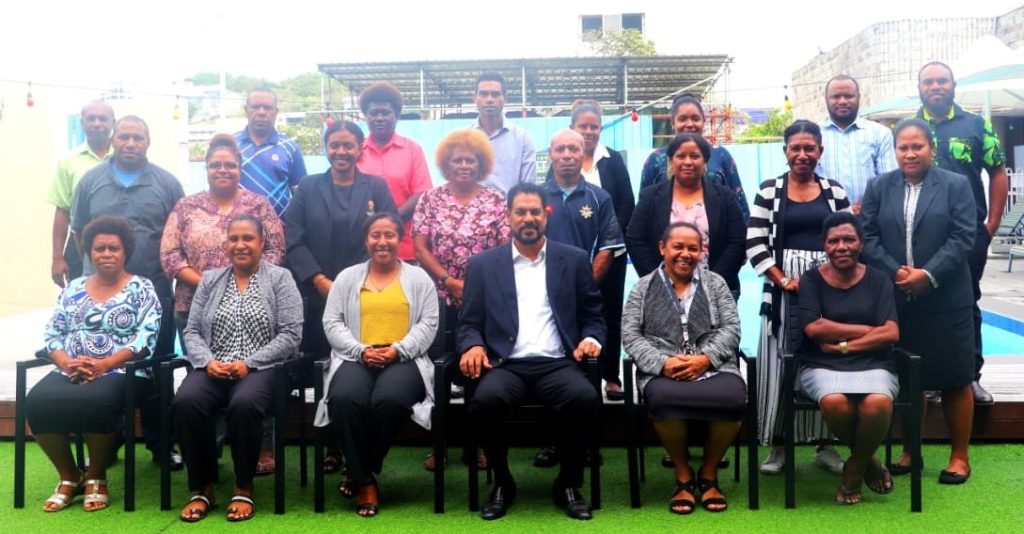Judge Conducts Vital Ethics and Integrity Workshop for Court Staff
Justice John Carey, the Judge Administrator of the PNG Centre for Judicial Excellence delivered an important training for staff of the National and Supreme Court on the topic of Ethics and Integrity. The workshop took place at the Crown Hotel, Port Moresby, where participants gathered to enhance their understanding of ethical principles and integrity in the workplace.
The workshop drew twenty-two (22) officers from various court divisions, including the NJSS Buildings and Facilities, Finance, Human Resource, Sheriff and Security, Court Registry, Court Reporting Services, and the Alternative Dispute Resolution (ADR) unit. This diverse representation underscored the importance of ethics and integrity across different roles within the judiciary.
Judge Carey led a comprehensive discussion on ethics and integrity, emphasizing the critical distinction between right and wrong, as well as lawful and unlawful behaviours. He highlighted that this understanding is fundamental to maintaining order and promoting fairness within any society. The workshop served as a platform for participants to engage in thoughtful dialogue about ethical decision-making.
In the context of Papua New Guinea’s rich cultural diversity, Judge Carey delved into the significance of ethics and integrity. He urged participants to recognize that what may be considered right within one’s cultural framework could be perceived differently elsewhere. Acknowledging these cultural nuances is essential for upholding ethical standards.
The one-day workshop covered essential topics:
· What is Ethics and Integrity: core principles that guide ethical behaviour.
· Why Ethics and Integrity Matter in the Workplace: relevance of principles of ethics and integrity within the court environment.
· Components of Ethics and Integrity: practical aspects and equipping attendees with actionable knowledge.
Justice Carey’s emphasis on ethics and integrity training for new NJSS officers is commendable. By imparting knowledge about policies and regulations, this training equips officers to make informed decisions rooted in ethical principles. Their role in upholding the rule of law and improving access to justice depends on this foundation.
As Papua New Guinea’s legal community continues to evolve, workshops like these play a vital role in shaping a principled and responsible judiciary.




